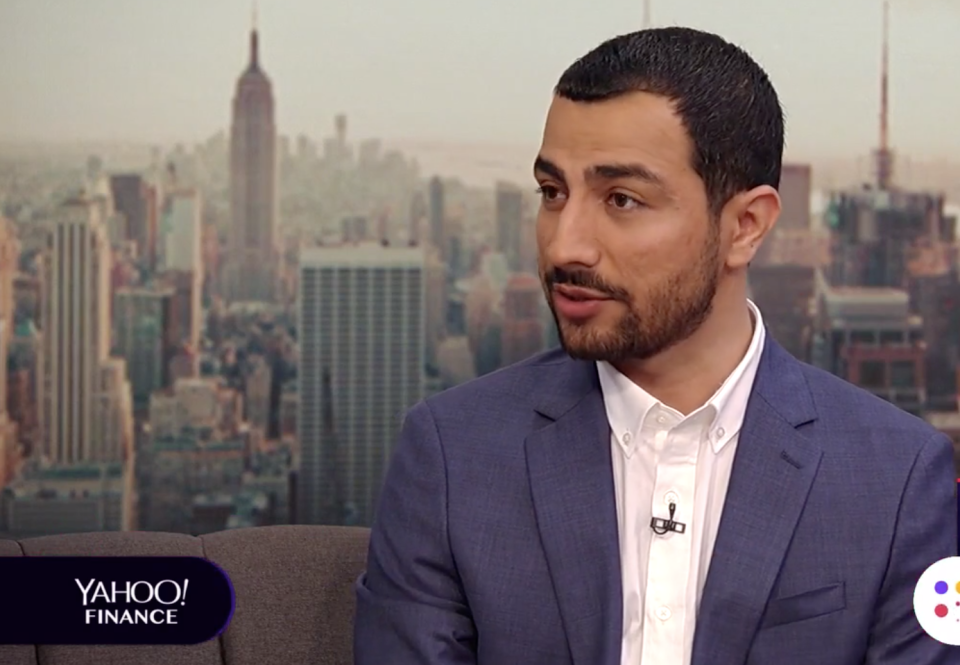Blockstack CEO on Libra: 'We have done what Facebook is trying to do'
Last week, Blockstack, a blockchain platform for building decentralized apps (“dapps”), launched the first SEC-qualified token sale.
The company is selling $28 million worth of “Stacks” tokens (STX) under SEC Regulation A+, which the SEC adopted in 2015 to help smaller companies raise capital (up to $50 million) without doing a traditional IPO. Blockstack is the first company to use Reg A+ to offer digital tokens rather than shares in the company.
You might remember the more common term for a token sale: “initial coin offering” or ICO. And you might remember the scores of startups that got in trouble with the SEC for launching unregulated, unapproved ICOs.
Blockstack is essentially doing an SEC-sanctioned ICO, though Blockstack CEO Muneeb Ali says, “I try to stay away from the name ICO as much as possible.” He says Blockstack spent 10 months with SEC officials establishing a framework where the company could distribute its tokens to U.S. investors.
But Blockstack launched its token sale during an inauspicious week in cryptocurrency news, with government officials from Federal Reserve Chair Jay Powell to President Donald Trump piling on Facebook’s planned Libra cryptocurrency.
Facebook aims to launch Libra (along with a consortium of “founding members” including Visa, MasterCard, PayPal, eBay, Coinbase, Stripe, Spotify, Uber and Lyft) in 2020 as well as Calibra, its own digital wallet app for storing and sending Libra—if Washington allows it.
If you ask Blockstack’s Ali, “Blockstack has done what Facebook is trying to do. It is already a decentralized computing network. It is permissionless blockchain, whereas Facebook is proposing a permissioned system.”

Targeting people “frustrated” by Big Tech
Critics in the crypto industry say that Libra isn’t really a true cryptocurrency anyway, since it has one very big, very powerful company behind it (Facebook) and appears to be a centralized, permissioned system, meaning that the other members have to buy in (each has committed to a $10 million investment) as opposed to the bitcoin blockchain, which is decentralized and permissionless—i.e. anyone can access and view it.
The Libra Association, in response, has said that it eventually will achieve decentralization with Libra where each member of the consortium will only have 1% voting power.
The widespread concerns about Facebook’s power over Libra are quickly becoming something of a stumping ground for rival cryptocurrencies and crypto projects like Blockstack, which already boasts more than 170 applications that developers have built on top of it, including apps for secure document-signing, and apps that purport to offer a more secure alternative to Google Docs.
“If you are someone who feels frustrated by things that Big Tech is doing, or you feel like there is no alternative available to Facebook or Google or these other large tech monopolies, I don’t think policy is the only answer here,” says Ali. “There are technological solutions that are also present that can be used and that don’t require any changes in existing regulations.”
Blockstack’s token is a utility token, meaning that it’s meant to be used within the Blockstack ecosystem—and it is not being marketed as an investment, with promises of big returns, like the ICOs of 2017 and 2018 largely were.
Of course, that won’t stop some people from buying Stacks tokens just in the expectation that the token will go up in value. And Ali uses Facebook as an example of the value of offering a utility token.
“The first 100,000 users of Facebook had no financial upside with the success of Facebook,” he says. “Only people who had equity interest, like stockholders of Facebook, had any financial upside. With these crypto regulated token offerings, that changes, because you can potentially have financial upside, but you are getting all the required disclosures and there’s full transparency.”
—
Daniel Roberts covers bitcoin and blockchain at Yahoo Finance. Follow him on Twitter at @readDanwrite.
Read more:
Jamie Dimon has questions about Facebook’s Libra coin
Facebook's Libra coin aims to 'put the currency back in cryptocurrency'
Facebook’s cryptocurrency wallet Calibra will launch in 2020
JPMorgan blockchain chief: Why we launched our own cryptocurrency
Cryptocurrency CEO who paid $4.6M for lunch with Buffett: 'It might be unrealistic'
Exclusive: SEC quietly widens its crackdown on ICOs
Read the latest financial and business news from Yahoo Finance
Follow Yahoo Finance on Twitter, Facebook, Instagram, Flipboard, LinkedIn, YouTube, and reddit.

 Yahoo Finance
Yahoo Finance 
